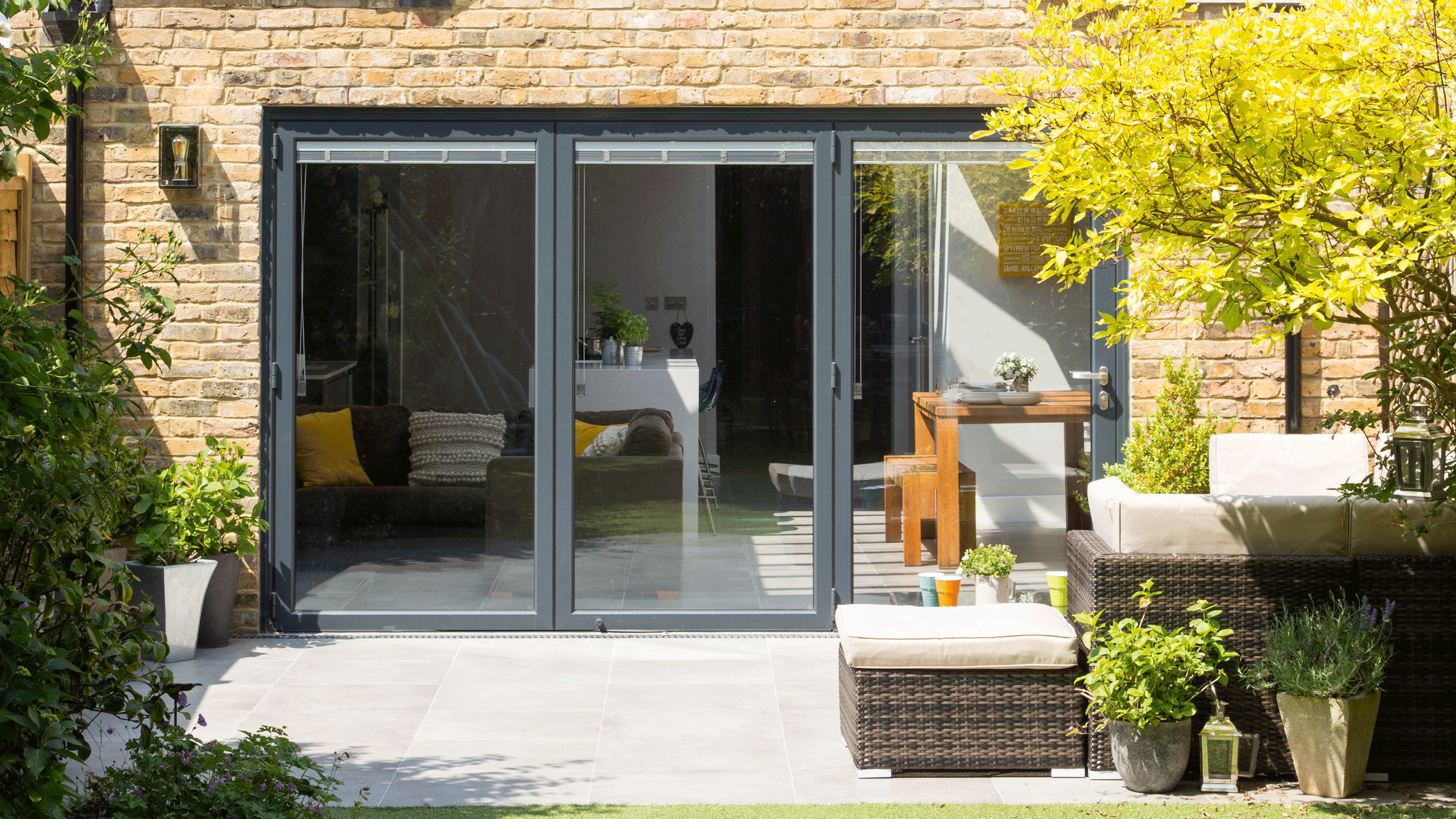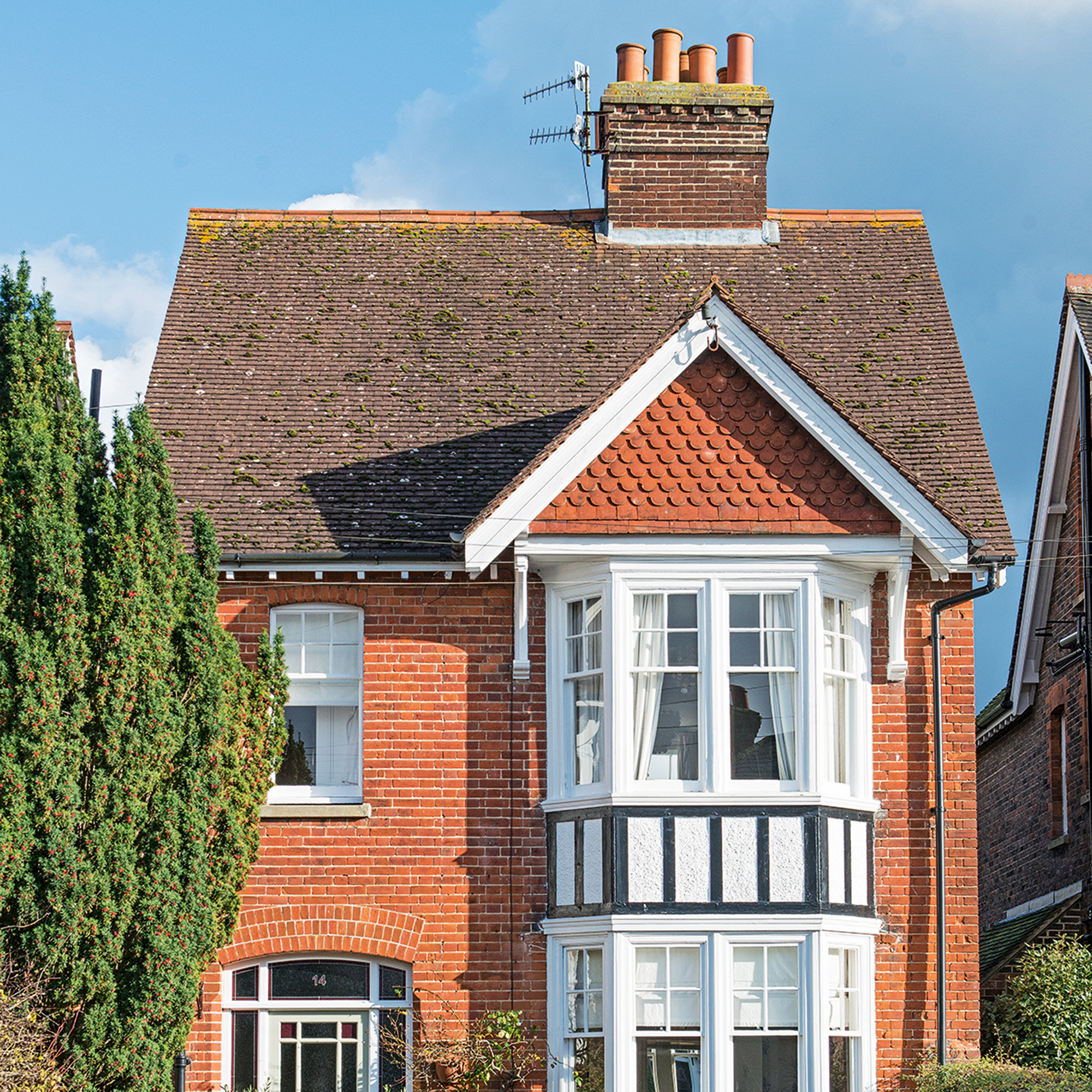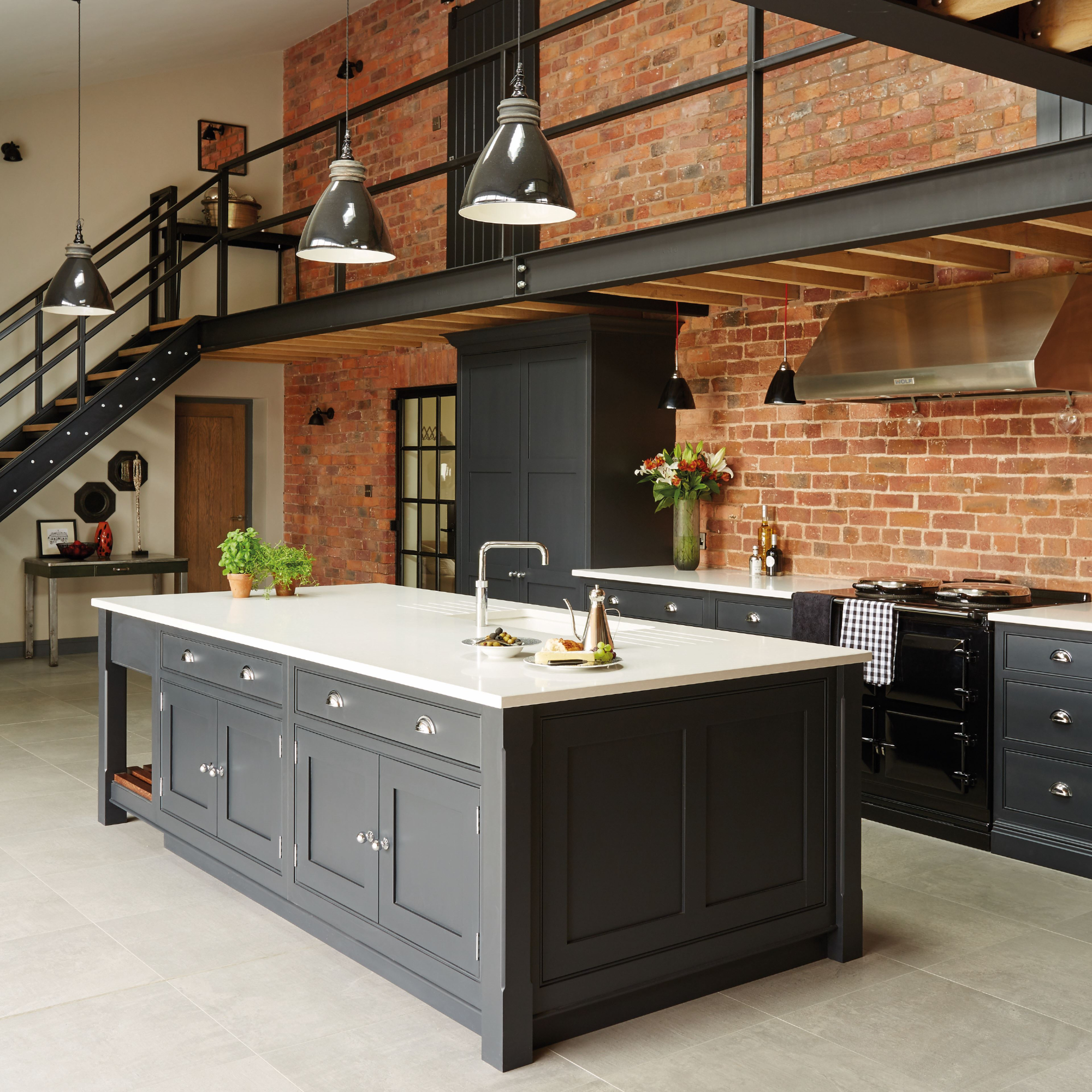Should you take out a second mortgage to renovate your home?
A second mortgage, also called a second charge mortgage, could help with your renovation project costs, but is it a good idea?

Sign up to our newsletter for style inspiration, real homes, project and garden advice and shopping know-how
You are now subscribed
Your newsletter sign-up was successful
If you're planning on renovating your home, a second charge mortgage might be worth considering.
In an uncertain housing market, with falling property prices and rising interest rates, some homeowners are choosing to take on a renovation rather than move. A survey by mortgage lender Together found that one in 10 households planned to invest money into renovating their home.
Stewart Simpson, second charge mortgage specialist at brokerage Bright Star Financial, says: 'We’re finding that people who aspired to climb the property ladder and would have previously qualified for a mortgage to buy a bigger house last year, no longer do. Instead, they’re looking at finance options to extend or improve their current home.'
If you don’t want to sink all your savings into home improvements - should you consider a second-charge mortgage to renovate your home instead?

What is a second charge mortgage?
A second charge mortgage, also called a second mortgage or a secured loan, is a way of borrowing more money against your property if you already have a mortgage. Like a traditional mortgage, a second mortgage is regulated by the Financial Conduct Authority.
So how does it work? You must apply through a mortgage broker who will assess your income and outgoings, including your mortgage payment to check the loan is affordable. Your home will also be valued. The legal work is done in-house by the lender so there’s no need to instruct your own solicitor.
If you were to view the title deeds to your property after your secured loan application you’d see your mortgage lender’s name registered first then the second charge lender’s name underneath.
Sign up to our newsletter for style inspiration, real homes, project and garden advice and shopping know-how
If your home was repossessed, the mortgage lender who ranks top on your title deeds takes their share of the proceeds from your property sale first. Anything left gets paid to the second charge lender.
That’s why second charge rates are higher than mortgage rates. There’s a greater risk they will not get all their money back.
How much can you borrow?
You can borrow up to £1 million but lenders will consider more on a case-by-case basis. The amount you’re offered depends on the equity in your home. Most second charge lenders will lend up to 85% of the value of your home, after your mortgage has been taken into account. Some will go up to 100%.
Let’s say your home was worth £300,000 and you had an outstanding mortgage of £150,000. If you applied for a second charge mortgage, the lender would calculate 85% of your home’s worth which is £255,000. They would deduct your mortgage balance, leaving you with £105,000. This would be the maximum loan amount you’d be offered subject to income checks.

Who is eligible?
To be eligible you must have had a mortgage for six to 12 months. The property must remain in a liveable condition throughout your renovation works.
Your first charge mortgage lender must consent to your application. They’ll be checking you can still pay their mortgage even though you’re taking on more debt.
Who is a second charge mortgage not suitable for?
If you don’t need to borrow a large sum of money, a second charge mortgage may not be suitable for you. For example, for a loan of £10,000 you may be paying fees of around £2,000 in total, a cost of 20%. Some personal loan rates for £10,000 are around 6.5% and you may even qualify for an interest free credit card to cover a small sum.
Is a second charge mortgage a good idea for renovators?
A second charge mortgage can be a good idea for renovators because you can access a high loan amount to complete a substantial project. The loan can be spread over 25 years to lower the monthly payments.
Pros of a second charge mortgage
Can keep your mortgage deal
Homeowners part way through a low fixed rate of 2%, for example, will be keen to hang on to their mortgage deal until it expires. By taking out a second charge mortgage, borrowers can keep their favourable fixed rate in place.
When their mortgage deal does expire, they can remortgage to repay both the current mortgage and second charge.
Taking a second mortgage also means you’ll avoid paying a high early repayment charge to quit your mortgage deal before the rate expires.
Flexible lending rules
If you’ve been declined for additional borrowing by a mortgage lender, a second charge lender may give you the loan. They offer higher income multipliers (how many times your salary they will lend) and are more sympathetic to past credit issues.
Lenders often offer flexible early repayment charge terms too. For example you can take out a five-year fixed rate that only carries a penalty for early repayment in the first two years. This is useful if your current mortgage deal has two years left to run. You can then remortgage and repay both debts at the same time.
High loan amounts
With loans available up to £1 million, for those with the equity and income to support a large loan amount, a second charge mortgage is a good way to pay for large renovation projects.

Cons of a second charge mortgage
Rates are expensive
Second charge rates are around 7% and can exceed 10% depending on your circumstances.
Nicholas Mendes, mortgage technical manager at mortgage advisor John Charcol, says: 'I always recommend that borrowers consider all the options for borrowing the money they need, such as a remortgage or a further advance from their existing lender, before turning to a second charge because rates are often more expensive.'
A broker will compare the cost of keeping your current mortgage in place and taking out a second charge with the cost of remortgaging to a new lender to raise the cash, taking early repayment charges into account.
Increased risk of repossession
Having two mortgages increases your risk of repossession if you can’t keep on top of both commitments. Even if you’re up to date with your mortgage, if you fall behind with your second charge mortgage, you could still lose your home.
Fees can be high
Second charge broker fees vary widely. Some can be more than £1,000 or a percentage of your loan, for example 2%, so it’s worth shopping around.
Other fees include:
- Lender arrangement fee up to £995
- Valuation fee which depends on the value of your property
- Administrative fees to cover the cost of applying for consent from your mortgage lender and transferring the money to you on completion.
May be unable to remortgage in future
Nicholas Mendes adds: 'You may intend to remortgage in a few years’ time and clear the second charge so paying a higher rate in the short term seems fine. But if lenders tighten their affordability criteria again, like we’ve seen in the cost-of-living crisis, you may find that in the future you are refused a remortgage large enough to clear all your secured debt.
'If you think your circumstances are likely to change in the future which could lower your income, don't risk taking out a second charge mortgage."
What happens if you want to sell?
If you want to sell your home, you’ll have to repay both your mortgage and second charge loan which will leave you with a smaller deposit for your next property purchase.
Alternatives to a second charge mortgage
- Further advance from your current mortgage lender.
- Remortgage to another lender and raise money for home improvements at the same time.
- Take out a personal loan. Balances tend to be capped at £25,000 but some banks will offer up to £50,000.
- For smaller, inexpensive projects, you could use a credit card that has an interest free period.
Before taking out a second charge mortgage, ask a broker to review your circumstances and compare the costs of each option.
Samantha Partington is a personal finance journalist specialising in mortgages and the property market.
Over the past nine years, Samantha has worked for the Daily Mail, trade website Mortgage Solutions and business title Property Week. She regularly writes for national money pages including Money Mail and Sun Money and supports prop tech firms with content writing.